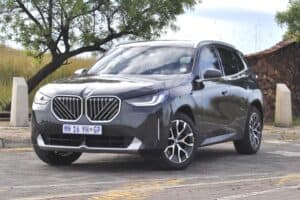The Volkswagen Group has set its sights on global market leadership in electric mobility.

“We are starting at exactly the right time,” said Volkswagen chief executive officer Professor Martin Winterkorn. He was speaking on the eve of the 65th International Motor Show in Frankfurt.
“We are electrifying all vehicle classes, and therefore have everything we need to make the Volkswagen Group the top automaker in all respects, including electric mobility, by 2018.” The company is showcasing models such as the all-electric e-up!
“The electric car cannot be a compromise on wheels, it must convince customers in every respect,” added Winterkorn. Environmental compatibility and sustainability were increasingly becoming the main purchasing criterion.
“From the zero-emission city car through the plug-in hybrid all-rounder to the three-litre sports saloon it is our customers who decide for themselves just how much e-mobility they want,” Winterkorn said.
The key to rolling out electric mobility swiftly and efficiently across all brands and vehicle classes is the modular toolkit systems which from the start have been designed for assembling electric drives. Production in Bratislava, Puebla, Wolfsburg, Leipzig or Ingolstadt can now respond flexibly, and at low risk, to demand as it arises and can reduce both weight and costs through the use of proven components.
The new e-up! is a four seat battery only car which operates with nearly zero noise. It has driving range of 150 kilometres and excellent everyday practicality.
Afterwards the e-up! can be recharged to as much as 80% of its energy storage capacity within 30 minutes.
The e-up! is powered by an electric motor with 60 kW peak power – without any gearshift interruptions or powertrain noise. Its continuous power is 40 kW and maximum torque of 210 Nm is available immediately. It reaches 100km/h from a standstill within 13 seconds and reaches a top speed of 130 km/h.
The lithium-ion battery has a total energy storage capacity of 18.7 Kilowatt-hours (kWh). This means that the car can cover up to 150 kilometres (per NEDC) on a single charge.
Support Local Journalism
Add The Citizen as a Preferred Source on Google and follow us on Google News to see more of our trusted reporting in Google News and Top Stories.






